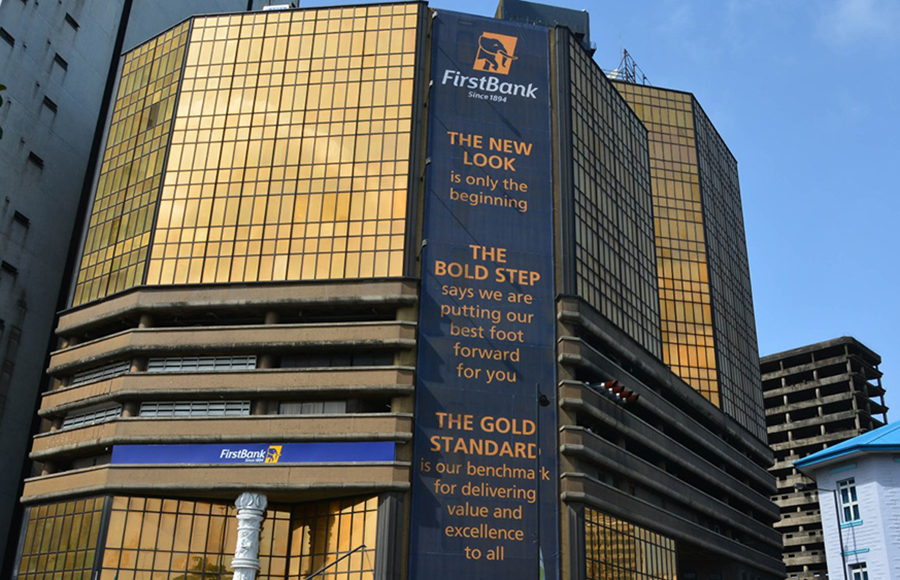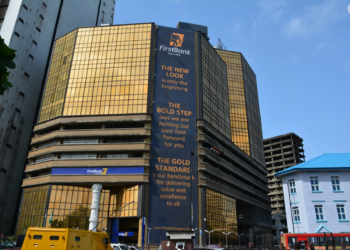Moody’s Ratings agency said on Thursday that it has put First Bank of Nigeria on review for a downgrade after the central bank sacked the board of directors and replaced them with new directors.
Moody’s made this statement in a report titled ‘Removal of Non-Executive Board Members Highlights Governance Shortcomings.’
In a quote, Moody’s said:
“Moody’s Investors Service, (“Moody’s”) has today placed all long-term ratings and assessments of First Bank of Nigeria Limited (First Bank) on review for downgrade. The review will focus primarily on an assessment of evolving governance considerations at First Bank, specifically corporate governance developments. The rating action follows the dissolution of First Bank’s board by the Central Bank of Nigeria (CBN), the bank’s primary regulator, on 29 April 2021. As a result of this action by the CBN, all the non-executive directors were removed while the executive management remained in place.”
The Governor of the Central Bank of Nigeria, Godwin Emefiele, had last week announced the sack of the entire board of directors of FBN Holdings Plc and its subsidiary, First Bank of Nigeria Ltd following the initial removal of its MD/CEO Dr Sola Adeduntan. Following his sacking of the board, he set up a new board for the bank holding company and its subsidiary and also reinstated Adeduntan as MD/CEO.
Moody’s mentioned that the regulatory actions demanded of First Bank by the CBN introduces a clould of uncertainty over the outlook of the bank. For example, the CBN had asked the bank to divest from its holdings in two listed companies while also recovering its loans from one of them.
“The review for possible downgrade reflects the rating agency’s view that the removal of all non-executive directors of the bank’s board by the regulator demonstrates corporate governance shortcomings and weaknesses in board oversight. The bank also needs to implement regulatory directives concerning the resolutions of loans to, and shareholding in non-banking related parties, which reportedly had not been executed in the recent past.
Moody’s notes that the outcomes of these developments are uncertain at this point, and the final and long-term governance, reputational and financial implications of the events for First Bank are also unclear.”
The central bank directive sacking the board of the bank also retained its executive management perhaps suggesting that the CBN had confidence in the ability of the MD and his team to manage the bank. Moody’s also noted this in its briefing.
“While the bank’s executive management team remained the same, the rating agency believes these developments could distract management’s focus on implementing the bank’s strategic plan and road to recovery. First Bank management’s immediate key target was to reduce nonperforming loans (NPLs) to levels comparable with domestic peers. The rating agency recognises that, in the context of asset risks, the bank took steps to reduce its stock of problem loans, with its reported NPL ratio falling to 7.7% at year-end 2020 from 25.9% in 2018.”
Will Moody’s downgrade First Bank?
The rating agency explained that the decision to downgrade will depend on how strong the bank’s corporate governance structure is and whether the CBN will impose additional sanctions. If any of these crystallizes, it could downgrade its ratings.
“The bank’s long-term deposit ratings can be downgraded if flaws in the bank’s governance systems exist, and if the CBN imposes additional sanctions on the bank, including, but not limited to, conditions to address any vulnerabilities that may be discovered. Financial output that is less than anticipated could also result in a rating downgrade.”
Moody’s, however, poured water on any optimism around a rating upgrade.
Given the review for downgrade and the pessimistic outlook on the government of Nigeria, there is a slim chance that First Bank’s ratings will be upgraded. Stronger solvency progress than currently reflected in the ratings, combined with a stabilization of the sovereign outlook, could result in the outlook being stabilized.
Why is rating important?
Corporate Organizations desire positive ratings because of the effect it has on their ability to raise capital as well as the cost of capital. A high credit rating typically attracts positive investor sentiments helping organizations tap the debt and equity markets, especially from institutional investors.



















